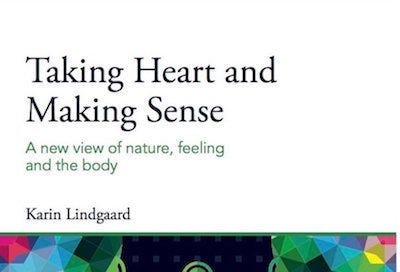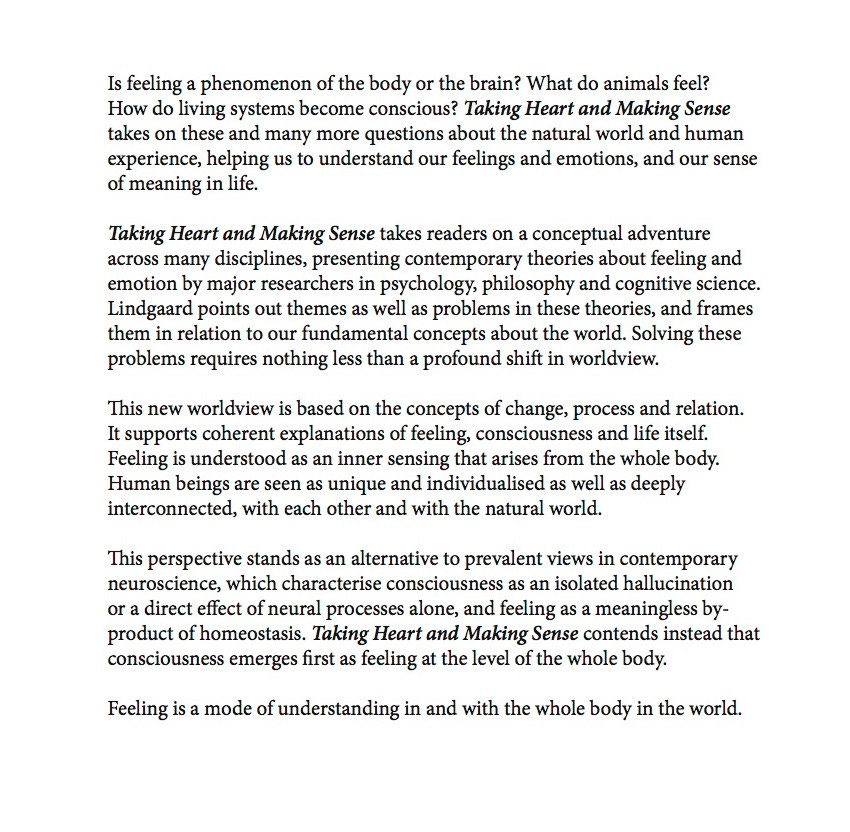My inspiration for starting this newsletter is to share my philosophy book about feeling and the body, as chapter-by-chapter audio. I’ll admit, I still have difficulty offering a succint summary of my book, but I generally pick one of a few phrases:
it about mind-body philosophy
it’s a theory of feeling, or
it’s about the relationship between consciousness and the physical world.
Hopefully this doesn’t sound grandiose, but gives a ballpark idea.
I have been deeply interested in the relationships between feeling, consciousness and the body for at least two decades—so interested that I did a doctorate (finished thirteen years ago) and a whole lot of independent research (since then) while working other jobs.
So let’s just say I’m fairly committed to the topic. It seems to be an itch I need to scratch.
My book is interdisciplinary and pretty dense for the lay reader but I’ve really tried to make it accessible. I don’t assume prior knowledge of any of the concepts I discuss, and I lead the reader through a series of theories to end up with a few key ideas about feeling and the body.
Some of those key ideas:
Feeling is the basis of consciousness. I don’t believe that there is any other abstract consciousness or awareness prior to feeling. Feeling emerges as the holistic inner sensing of natural processes within living organisms.
Feeling emerges from the whole body. It makes no sense to me to say that feeling occurs in the brain. To get a little more precise, the whole body is a process over time and feeling is the inner perspective of that process. Yes the brain is important, but no, it isn’t everything, and definitely no, we are not hallucinating our experience.
We really need to get beyond this idea either that everything is physical (or matter) or that everything is consciousness (or mind). Lately I find myself leaning more into the idea that consciousness might permeate everything, (and curious to explore that more), but I still think the better explanation is that matter and consciousness are two different perspectives on a process. Thinking in terms of processes and relationships seems to solve some intractable problems.
When you don’t start with physical matter but processes, it becomes much easier to imagine things like that people’s responses, feelings and interactions with one another are causally interconnected. Changing the inside can alter the outside, literally. That notion might often be associated with a more spiritual perspective, but I believe that theory might not be far off a good description of our interconnectedness. This forms important bridges between science and spirituality, and between nature and meaning, bridges that I see as fundamental to us regaining our sense of meaning and connection, to each other and to the natural world.
Here’s the book blurb:
I’d love to share this book with you.






Woot woot! 👏 👏👏